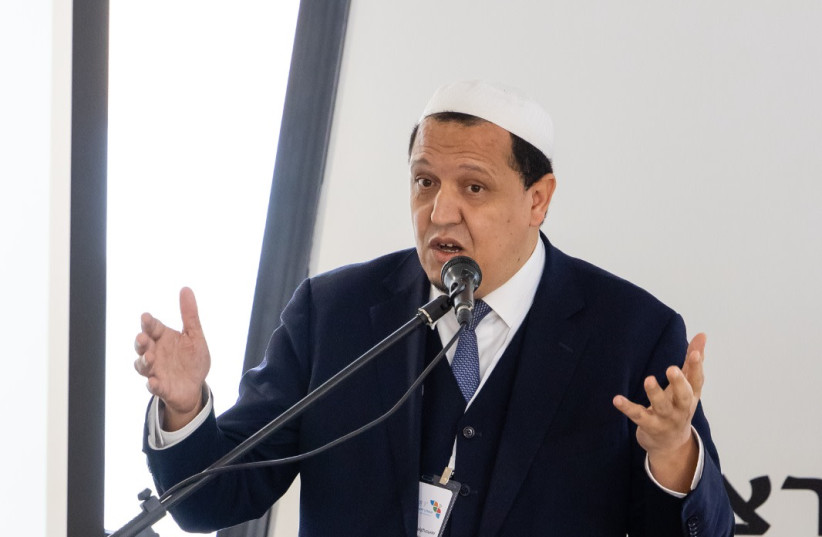A French Imam living in the Middle East has praised the Israeli democratic model and celebrated Israeli diversity while condemning extremists who “give the Koran a bad name.”
Sheikh Hassen Chalghoumi, who arrived in Israel this week to hold meetings with religious leaders and attend Tuesday’s International Bay Conference for Regionality 2023 in Haifa, described himself as “a man of peace and tolerance.”
“That is why I came here – to build bridges between the religions,” he told The Jerusalem Post.
This visit is not Chalghoumi’s first time in the country. He has come many times in the last several years, ever since he forged ties with other religious leaders in Israel. He said he wants the rest of the world to operate like Israel.
“In one hour, I had a Christian cab driver, a Jewish waiter and then had dinner with imams,” he said. “It shows the multiculturalism that exists in Israel. I come here to encourage others to work with me to build solidarity between all people.”

When asked if he experienced these same feelings even now, when the country has been described as being on the brink of civil war, and protesters fill the streets, the sheikh praised Israel’s democratic model.
“Despite the current situation, Israel is a country that allows free speech and the free sharing of ideas, and should be seen as a model for the world,” Chalghoumi said. “Muslims, Christians, Jews and Druze live together. This is the model I want to bring to Europe and other parts of the world.”
Chalghoumi was invited to Israel for his current visit by Aharon Azoulay, head of Hamifrats - the Municipal Authorities Cluster of the Gulf, to attend Tuesday’s conference.
At the event, the sheikh received a badge in “recognition of your many years of activity for bringing hearts together, and for your activity in creating regional communities that maintain a common and prosperous life.”
In addition to Chalghoumi’s involvement in the event, he participated in a ceremony honoring doctors in the Druze village of Usfiya. Sheikh Muhammad Sharif Odeh hosted him at the Mahmood Mosque in Kababir, Haifa. He also participated in a dinner in the Eshkol region with Jewish, Muslim, Christian and Druze heads of authorities.
Chalghoumi's personal history
Chalghoumi was born in Tunisia, and became a French citizen in 2005. He now serves as the chairman of the French Council of Imams. He has become a leading voice for interfaith and intercommunal dialogue between Muslims and non-Muslims, resulting in assassination attempts and harsh criticism from Muslim extremists. His family was forced to flee France due to these threats.
In France, he lived in Seine-Saint-Denis and ran the municipal Drancy Mosque. During the Holocaust, a large number of Jews were killed there, he told the Post. When Chalghoumi learned about the history of the Jewish community, he decided he must shed light on the plight of the Jews and fight antisemitism.
“I realized if I do not build solidarity and bring light to what happened to these Jews, who will?” he said. “Initially, I spoke out in the name of my faith. Now, I feel personally for the people who were killed in the Holocaust. And I stand up against antisemitism so something so tragic will never happen again.”
He said he does not regret the price he has paid for calling on people not to harm the Jews.
“My only fear is of God,” Chalghoumi said. “I am against all those who give the Koran a bad name. I am trying to ensure that the Koran is interpreted correctly. In the name of my faith, I must be close to the People of the Book.”
